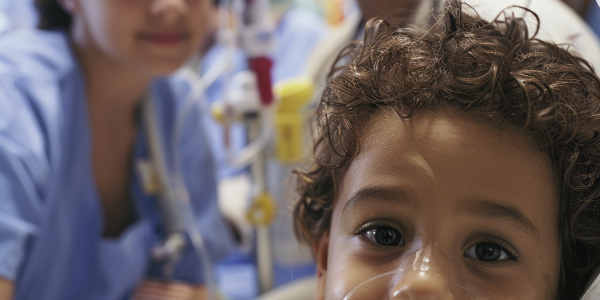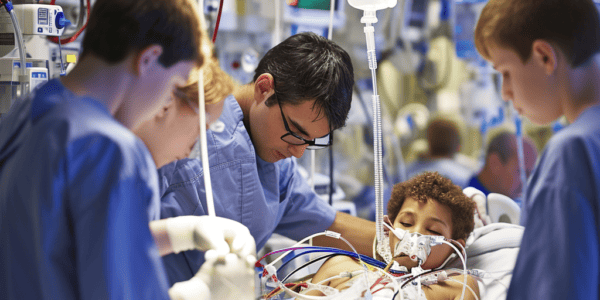Study Predicts Kidney Function Recovery Using Health Factors
A recent study by the University of Cincinnati reveals advancements in predicting kidney function recovery using health factors. Led by Dr. Silvi Shah and Dr. Charuhas Thakar, the research focuses on dialysis-dependent acute kidney injury (AKI) and its recovery. Published in the Clinical Kidney Journal and funded by NIH, the study aims to improve patient outcomes by analyzing various health factors. This groundbreaking research offers hope for more personalized interventions for patients with kidney injuries.
New Therapeutic Tool Developed for Children with Sepsis-Related Kidney Issues
The development of a new therapeutic tool offers hope for managing sepsis-related kidney issues in pediatric patients. This innovative solution aims to address the excessive response of white blood cells, marking a significant advancement in pediatric sepsis care. The tool’s potential to mitigate the detrimental effects of sepsis on the kidneys represents a crucial advancement in pediatric sepsis care, providing healthcare professionals with a valuable resource for managing this life-threatening condition.
New Tool Predicts and Safeguards Cancer Patients from Chemotherapy-Induced Kidney Damage
Researchers at Brigham and Women’s Hospital have developed an innovative tool to predict and safeguard cancer patients from chemotherapy-induced kidney damage. The tool, developed in collaboration with researchers from the Dana-Farber Cancer Institute and other institutions, utilizes patient data from six major U.S. cancer centers, making it the largest and first generalizable study of its kind. Cisplatin, a widely used chemotherapy drug, is highly effective in treating cancer but can also cause kidney injury, potentially leading to the discontinuation of life-saving cancer treatments. The newly developed risk prediction model aims to identify patients at the highest risk of moderate-to-severe kidney injury after receiving cisplatin. According to the researchers, the highest-risk patients had as much as a 20-fold higher risk of developing kidney injury after cisplatin compared to those in the lowest-risk group.
Woman Suffers Kidney Damage After Hair-Straightening Treatment
A woman suffered kidney damage after hair-straightening treatment at a salon, leading to recurrent acute kidney injury. The hair-straightening cream used contained glyoxylic acid, causing scalp burning and ulcers, with the acid likely reaching her kidneys and causing damage. The study suggests the need for stricter regulations and safer compounds in hair-straightening products to prevent similar incidents in the future.
Study Finds Mutations in Blood Increase Risk of Acute Kidney Injury in Adults
A recent study led by Vanderbilt University Medical Center has shown that mutations in the blood can increase the risk of acute kidney injury in adults, particularly in the older population. The study, published in Nature Medicine, highlighted the potential for new treatments and prevention strategies for AKI, shedding light on the underlying mechanisms for AKI development. The research focused on clonal hematopoiesis of indeterminate potential (CHIP), which was found to be linked to a 40% higher risk of death from various conditions, making this age group particularly susceptible to AKI. The study involved a meta-analysis of three population-based cohorts and demonstrated a clear association between CHIP and AKI, particularly in patients requiring intensive care.
Timing of Continuous Renal Replacement Therapy Crucial for Pediatric Survival, Study Finds
According to a recent study published in JAMA Network Open, the timing of continuous renal replacement therapy (CRRT) is crucial for the survival of children with acute kidney injury (AKI) or volume overload in the intensive care unit (ICU). The…






